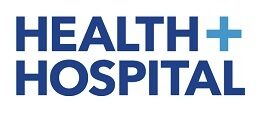
Problems with the Heart: Symptoms of Heart Blockage
The human heart, a marvel of biological engineering, tirelessly performs the vital function of pumping blood throughout our bodies. Despite its robust nature, the heart is susceptible to challenges, and one such significant issue is heart block. In this comprehensive exploration, we will delve deeper into the complexities and symptoms of heart block, deciphering its types, and emphasizing the crucial importance of recognizing the conditions that warrant immediate attention.
Diagnosing and addressing heart conditions call for medical expertise at an exceptional scale. Visit a top hospital in Delhi to experience the best cardiovascular care in the region.
Understanding Heart Block
Heart block, a condition characterized by disruptions in the heart’s electrical signals governing its rhythmic contractions, presents in various forms. The intricate electrical system orchestrating the heart’s beats can encounter obstacles, leading to irregularities in its rhythm.
Delving into the types of heart block is essential for a nuanced understanding. First-degree, second-degree, and third-degree (complete) heart block constitute the spectrum, each presenting unique challenges. Recognizing these distinctions is paramount for early detection, ensuring timely and appropriate medical intervention.
Symptoms of Heart Block
To safeguard one’s health, being vigilant about the symptoms of heart block is of utmost importance. Individuals must remain attuned to the following signs. If any of these signs are to be witnessed, going to the best hospital in Delhi to get a proper diagnosis and treatment done would be the right step to take.
First-Degree Heart Block Symptoms:
Subtle fatigue: The mild symptoms of first-degree heart block may manifest as a sense of fatigue or a slightly slower heart rate.
Asymptomatic cases: Some individuals may exhibit no noticeable symptoms, underscoring the importance of regular check-ups, particularly for those with cardiovascular risk factors.
Second-Degree Heart Block Symptoms:
Intermittent palpitations: Irregular heartbeats or palpitations may occur, signalling a disturbance in the heart’s electrical conduction.
Fatigue and dizziness: As the heart struggles with rhythm irregularities, individuals may experience fatigue or dizziness, especially during physical exertion.
Third-degree (Complete) Heart Block Symptoms:
Severe fatigue and weakness: Complete heart block significantly diminishes the heart’s ability to pump blood, leading to pronounced fatigue and weakness.
Fainting or syncope: Episodes of fainting become prevalent, indicating insufficient blood flow to the brain.
Shortness of breath: Declining pumping efficiency may cause shortness of breath, even with minimal physical exertion.
It’s crucial to note that symptoms can vary among individuals, and some may not exhibit noticeable signs. Regular health check-ups, especially for those at risk, play a crucial role in the early detection of heart block.
Risk Factors and Prevalence
Age, as a significant risk factor, deserves a closer examination. The ageing process naturally affects the heart’s electrical system, increasing the likelihood of disruptions. According to recent studies, individuals over 65 are not only more prone to heart block but also exhibit a higher prevalence of associated risk factors such as hypertension and atherosclerosis.
Furthermore, a family history of heart block can significantly elevate an individual’s susceptibility. Genetic predispositions may contribute to abnormalities in the heart’s electrical conduction system. Understanding one’s family medical history becomes crucial for early detection and preventive measures.
Other contributing factors include existing heart conditions, such as cardiomyopathy and congenital heart defects. These conditions may directly impact the heart’s electrical pathways, making individuals with these issues more susceptible to heart block.
Preventive Measures
Given the intricate nature and types of heart block and its associated risk factors, adopting preventive measures is paramount for maintaining heart health. Lifestyle modifications can play a pivotal role in reducing the risk and symptoms of heart block:
Regular Exercise: Engaging in regular physical activity promotes cardiovascular health and helps maintain an optimal heart rate. Consult with healthcare professionals to tailor an exercise regimen suitable for individual health conditions.
Healthy Diet: A balanced diet rich in fruits, vegetables, whole grains, and lean proteins contributes to overall heart health. Limiting the intake of saturated fats and cholesterol helps manage cardiovascular risk factors.
Regular Check-ups: Routine health check-ups, especially for individuals with known risk factors, enable early detection and intervention. Regular monitoring of blood pressure, cholesterol levels, and heart function can be instrumental in preventing any types of heart block.
Treatment Options
In cases where heart block is diagnosed, various treatment options are available depending on the severity and type of blockage:
Medications: Medications such as beta-blockers or pacemakers may be prescribed to regulate the heart’s rhythm and ensure efficient electrical conduction.
Lifestyle Modifications: In addition to preventive measures, individuals diagnosed with heart block are often advised to make lifestyle modifications, including dietary changes and regular exercise.
Surgical Intervention: In severe cases, surgical procedures may be necessary to address underlying cardiovascular issues contributing to heart block.
Conclusion
Extending our exploration of heart block brings to light additional nuances, emphasizing the critical role of age, family history, and lifestyle factors in its development. Preventive measures, coupled with a proactive approach to healthcare, are pivotal in reducing the risk of heart blockage and promoting overall cardiovascular health.
Regular check-ups, a healthy lifestyle, and awareness of individual risk factors collectively contribute to a robust defence against heart blockage. For those diagnosed with heart blockage, advances in medical technology and treatment options provide hope for effective management and improved quality of life.
Your heart’s well-being is a collaborative effort between you and your healthcare team. By staying informed, adopting a heart-healthy lifestyle, and seeking timely medical attention, you actively contribute to the longevity and vitality of your cardiovascular system.
If you want to maximise your cardiovascular health, consulting the best doctors at a super-speciality hospital in Delhi is the way to go.





